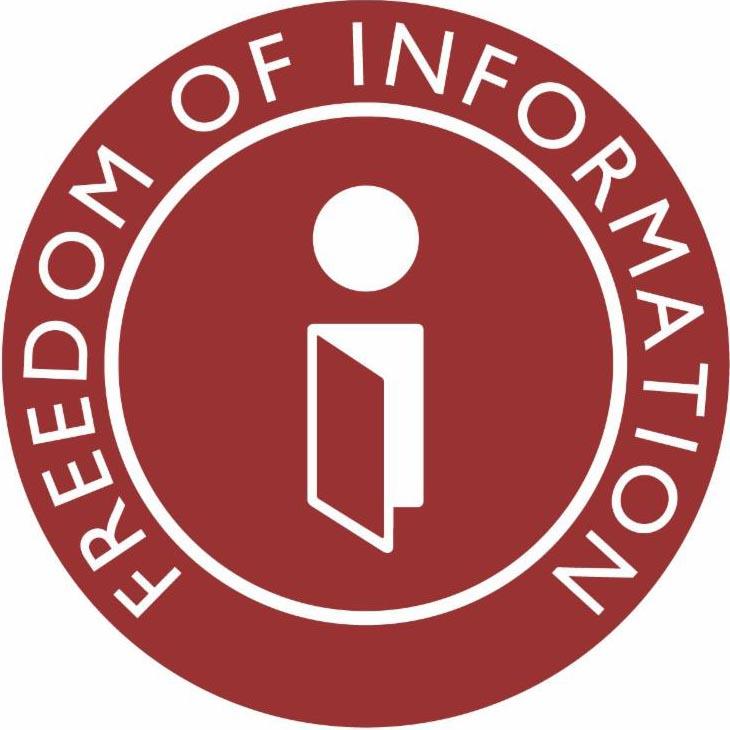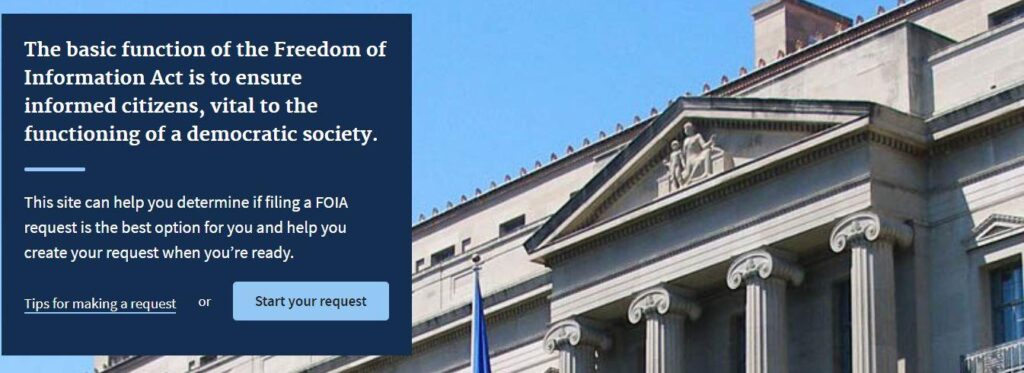
Why thank the mundane for democracy?
by Maresa Jenson, legal fellow
“A democracy works best when the people have all the information that the security of the Nation permits. No one should be able to pull the curtains of secrecy around decisions which can be revealed without injury.”
—President Lyndon Johnson upon signing the Freedom of Information Act on July 4, 1966
Most administrative documents don’t make it into the limelight, but Freedom of Information Act requests have recently sparked politically charged commentary and media attention.
Why? Because FOIA requests are an important tool for government transparency and a primary information source for journalists and public interest groups. With the current administration, however, the wheels of public disclosure processes have ground to a halt.

The sheer volume of requests might contribute to the slowdown—the Department of the Interior cites a 30% increase of FOIA requests from FY 2016–2018—but this increase reflects, in fact, the Trump administration’s deliberate shift away from government transparency.
Although this shift is occurring across the federal government, DOI in particular is limiting access to documents. Recent changes to its policies put FOIA requests in the hands of a political appointee. The agency has even proposed rule changes to limit disclosure and access to records.
What are FOIA requests?
FOIA allows anyone to request public documents. The statute’s definition of “record” is broad to promote transparency. The most frequently requested and released records include calendars, electronic communications (chats and emails), drafts of documents, scientific data, memoranda, and notes.

FOIA creates the presumption that records will be released. If any agency withholds documents, it must assert one of nine exemptions, such as the protection of national security, attorney-client privilege, personal privacy or the safety of an individual.
FOIA also imposes short deadlines to ensure that the information gets to the public within a meaningful time period—like before voting or participating in public processes where government decisions are made.
Agencies have twenty days to make records available. Unfortunately, this deadline often lapses. Frequently, during this administration, legal action is required to prompt the agency’s document disclosure.
Legal work protects our rights
Trustees for Alaska submits FOIA requests on behalf of our clients. The records we request shed light on important decision-making processes for public lands, waters, wildlife, and people.
Our clients use these records to inform the public on controversial policy issues, ensure agency compliance and performance, and challenge agency actions. FOIA records assist our clients in reaching their goals and objectives.
DOI just gave FOIA review power to political appointee
Former Secretary Ryan Zinke signed an order in November 2018 to increase internal review of FOIA records before their release.
Usually, a career employee oversees the FOIA records program, but Zinke created a chief FOIA officer position and then filled it with a political appointee—former Koch brothers’ advisor Daniel Jorjani. This move essentially allows overt political influence over decisions about what information the public gets to see.
It gets worse
Just to put more dirt in the sludge pie, Zinke then proposed a new FOIA rule that would expand an agency’s ability to deny requests if they are “[e]xtremely broad or vague,” “unreasonably burdensome” or that “requires the bureau to locate, review, redact, or arrange for inspection of a vast quantity of material.”
So what’s the big deal? Well, these so-called reasons for denial lack definition or clarity—we don’t know what “extremely broad or vague” means, what constitutes “burdensome,” or what amount of material is “vast.”
In other words—during the 2018 holidays when people were busy, and just before his resignation due to ethics investigations—Zinke handed over the keys to information to a Koch brothers’ insider who may get to use arbitrary and baseless excuses to deny the release of information vital to the public interest.
Withholding information is NOT what democracy looks like
This new proposed regulation would further limit the amount of FOIA records the agency has to process at any one time—slowing down an already lengthy process and creating an arbitrary excuse for withholding information.
These changes thwart transparency, erect barriers to releasing public documents, and curtail public knowledge of decisions directly affecting citizens.
DOI received over 65,000 comments on this proposed rule, signaling the public’s interest in government transparency. If adopted, this new rule will hinder Trustees’ ability to obtain important information for our public interest clients, and hinder the public’s right to transparent governance. The direction DOI is moving with the proposed changes will effectively allow the agency to operate behind closed doors. The timely and full release of public records is essential to ensure government accountability and transparency.


